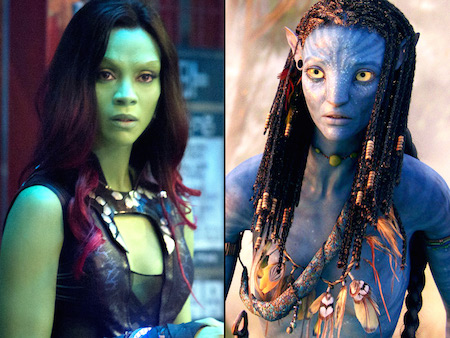The work of C.S. Lewis aside, why does science fiction so rarely see religion in the future?
True, a few writers have thought it charming to have tourists from the future drop in on the Sermon on the Mount, as in Robert Silverberg’s Up the Line, where one character says, “the crowd. . .grows bigger and bigger, every time I go there again.” But I can think of no novel or film where, 1,000 years from now as space cowboys rocket around the galaxy – or in the now but in a parallel universe – there is one word of reverence uttered about Father, Son, or Holy Spirit.
The suggestion seems to be that as we “progress” in time, we jettison antiquated Judeo-Christian notions; that encounters with alien worlds are, ipso facto, proof that our cosmologies are cultural remnants of anxiety-ridden people, terrified by the fear that we are alone. Whereas in a fairly crowded multiverse – filled as it is by creatures without a Bible, with people to whom the Gospel was never proclaimed, with places to which the Savior of Mankind has never come – all parochial ideas get sucked into a black hole of relativism.
I recall one Star Trek episode in which Kirk and crew are on a distant planet where the people speak reverently of the Sun – or so the Enterprise crew believes, until they realize the word is Son. Far out!
Now writing and filmmaking are taxing arts, and SF-fantasy authors and screenwriters have a enough on their minds creating other worlds – sometimes with new languages, always with new technologies – to also have to deal with the reality that religion has been, is now, and surely always will be at the heart of civilization, even if desiccated by scientism.
Lewis and J.R.R. Tolkien put Christianity into their books, albeit in allegorical form; simply to ignore religion altogether makes no sense.
There is, of course, Philip Pullman’s His Dark Materials series, which is both generally atheist and explicitly anti-Catholic, but which least acknowledges the existence of religion. And, lest I forget, there’s the explicitly Catholic – albeit heterodox – A Canticle for Leibowitz, written by the troubled Walter Miller. But there are few other SF books/movies that suppose the endurance of Christianity.
Often there are godlike beings with cults of their own, almost always malevolent. But the eternal Word of God? Readers may wish to name any literary or cinematic exceptions. (Please though, not the “force” of Star Wars.)
And these days many SF novelists (and moviemakers) also worry about picking sides in the so-called Culture War. Whatever the complex of reasons why: they have seen the future and it is faithless. Dystopia rules.
Then again. . .there is in nearly every fantasy film (set in space or in the Shire) an aspiration towards teleology. As Saint Paul put it: “For since the creation of the world God’s invisible qualities – his eternal power and divine nature – have been clearly seen, being understood from what has been made, so that people are without excuse.” (ROM 1:20)

You can see this (the ordering towards proper ends) in the recently released space-opera-based-upon-a-comic-book movie, Guardians of the Galaxy, which, by the way, is about as much fun as a film can be. Of course, you have to want to have fun to enjoy it.
But now a warning, as they say: You’ve seen this movie before – a lot. Precious little imagination was invested by writers James Gunn and Nicole Perlman in devising a plot: it’s basically Star Wars or Seven Samurai or a dozen other movies up and down a list of least- and most-creative in the let’s-save-the-world (or -village) subgenre.
What makes Guardians so entertaining is its pace, humor, and performances.
A quick overview without spoilers: A boy named Peter Quill is whisked from Earth into outer space – into a galaxy far, far away – and grows up to be an intergalactic junk dealer. All is well until he gets his hands on a piece of the Big Bang or whatever – it’s Hitchcock’s “MacGuffin”: the Thing Everybody Wants.
The actor Chris Pratt is charming as Quill. He falls in with a group of misfit aliens: a raccoon (voiced by Bradley Cooper), an animate tree (grunted by Vin Diesel), a tattooed warrior (flexed by Dave Bautista), and a beautiful green female played by the formerly blue (Avatar) Zoe Saldana, who is perfect.
And whereas at the start each is seeking either fame, fortune, or revenge strictly for personal reasons, eventually they join forces in a battle to save the galaxy from the clutches of a worlds-destroying villain called Ronan (the fine Lee Pace, here utterly wasted inside a seen-it-before, Darth Vader-like costume).
Our formerly self-centered guardians very consciously risk the ultimate sacrifice in hopes of saving billions of creatures they’ll never know, and who will never know them, and, whether the screenwriters or director (the aforementioned Mr. Gunn) realize it (or wish to acknowledge it), this self-sacrifice, this courage, this love rarely arises in a vacuum – in this case not space but the moral kind.
But would it kill Hollywood (including the writers, artists, and inkers of comics) to have just one character who kneels before a crucifix and makes the Sign of the Cross? Do they really think Jesus will be forgotten in the future or be unknown in a parallel universe? Do they suppose God is not One? Who made Quill and Ronan – Geppetto the carpenter; Dr. Strangelove?
The best literature has always grappled with ultimate questions, and it’s a manifestation of third-rate imaginations that this is so rarely the case with science fiction. And don’t, please, anybody go on about Kubrick’s Star Child in 2001: A Space Odyssey. There’s a whole lot less than meets the eye in that New Age nonsense.














